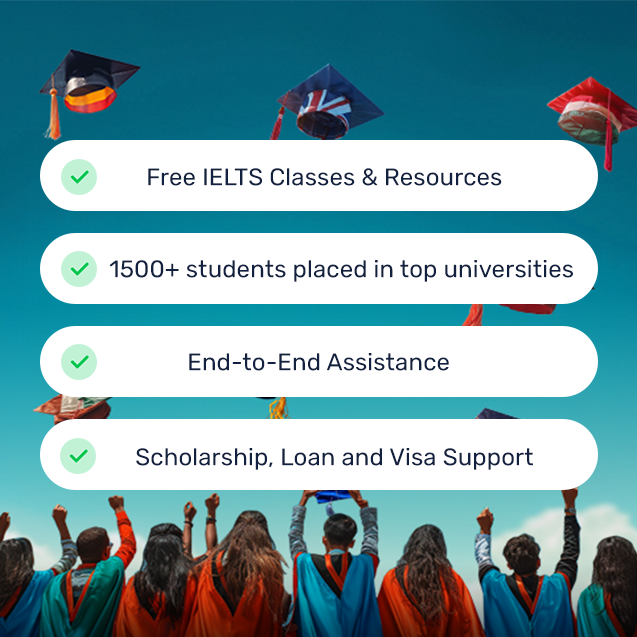Frequently Asked Questions
Why should I consider studying abroad?
Studying abroad offers numerous advantages, including exposure to diverse cultures, access to world-class education, enhanced
career prospects, personal growth, and the opportunity to develop a global network.
Which countries are popular for Indian students to study abroad?
Popular study destinations for Indian students include the United States, Canada, United Kingdom, Australia, Germany, Singapore,
New Zealand, Ireland, the Netherlands, and France. These countries offer a wide range of programs and have welcoming policies
for international students.
How do I choose the right university and program?
Consider factors such as academic reputation, program offerings, faculty expertise, research opportunities, location, cost of living, scholarships, and career prospects. Research universities, their rankings, and alumni networks to make an informed decision.
What are the language requirements for studying abroad?
Language requirements vary depending on the destination and program. English proficiency tests like IELTS or TOEFL are often required for non-native English speakers. Some countries may have additional language proficiency requirements.
How do I finance my studies abroad?
Funding options include scholarships, grants, student loans, part-time jobs, and financial aid. Research scholarships specifically available for Indian students, explore government scholarships, and check if universities offer any financial assistance.
What are the visa requirements for studying abroad?
Visa requirements vary by country. Research the specific visa requirements for your chosen destination, including documents needed, financial proof, health insurance, and application procedures. Allow sufficient time for visa processing
How do I choose the right university and program?
Consider factors such as academic reputation, program offerings, faculty expertise, research opportunities, location, cost of living, scholarships, and career prospects. Research universities, their rankings, and alumni networks to make an informed decision.
How do I adapt to a new culture and lifestyle?
Embrace cultural differences, be open-minded, and engage in cultural activities and events. Join student organisations, interact with local students, and participate in orientation programs offered by universities to ease your transition.
Can I work part-time while studying abroad?
Many countries allow international students to work part-time during their studies to support themselves. Check the regulations of your chosen destination regarding work permits, limitations on working hours, and opportunities available.
How do I ensure my safety while studying abroad?
Prioritise your safety by familiarising yourself with local laws, emergency contacts, and campus security. Take precautions, follow safety guidelines, and stay informed about the local environment. Universities often have support services for international students.
How can studying abroad benefit my career?
Studying abroad enhances your global perspective, intercultural communication skills, adaptability, and problem-solving abilities. Employers value these qualities, and studying abroad can provide a competitive edge in the job market.


